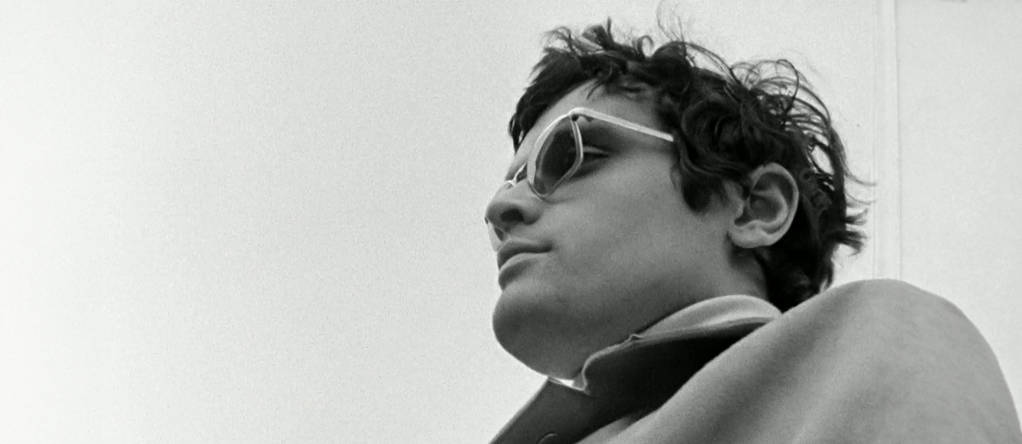Admission starts at $5
November 7, 2024, 7pm
Brooklyn, NY 11205
USA
Join us at e-flux Screening Room on Thursday, November 7 at 7 pm for Against War: Farocki’s Activist Legacy from Vietnam to Today, a curated selection of films that engage critically with the themes of war, militarization, and the power of moving images in shaping public discourse. This screening spotlights works by artists and filmmakers who extend and reinterpret Harun Farocki’s activist approach, using the film medium to question the politics of representation and the ethics of visualizing violence. The films address conflicts from the Vietnam War to contemporary crises, exploring the legacy of Farocki’s unique methods in critiquing war and its machine through the language of cinema.
This screening includes moving-image works by Jill Godmilow, Harun Farocki, Irena Vrkljan, Miranda Pennell, Forensic Architecture, Thomson & Craighead, and Total Refusal. Together, these works challenge the viewer to consider how images of war are constructed, disseminated, and understood in a media-saturated world, while pushing forward Farocki’s commitment to exposing the hidden origins and unseen consequences of conflicts.
This screening is the first part of Harun Farocki: 10 Years in Memoriam, a three-part series consisting of two screenings and one symposium, curated by Zachary B. Feldman and co-presented by Goethe-Institut New York and e-flux Screening Room. The event commemorates a decade since Farocki’s passing by showing and discussing his works together with those of contemporary artists and filmmakers who continue to reflect on Farocki’s legacy of anti-war activism and critical engagement with media. Click here to learn more about the second screening and the symposium that will take place at the Goethe-Institut New York on November 9.
Films
Jill Godmilow, What Farocki Taught (1998, 30 minutes)
This film is a shot-for-shot, color remake of Harun Farocki’s Inextinguishable Fire (1969). Godmilow uses this recreation to reflect on Farocki’s critique of the Vietnam War and the ethics of representing violence. It questions documentary conventions and engages with Farocki’s method of exposing the political implications of media imagery.
Harun Farocki, The Campaign Volunteer [Der Wahlhelfer] (1967, 8 minutes)
This early documentary by Harun Farocki examines the political engagement of a young Free Democratic Party (FDP) supporter, Harald Loch, during a German election campaign. It reflects Farocki’s interest in how personal political consciousness can develop rapidly in response to broader societal movements.
Irena Vrkljan, Faroqhi Shoots [Faroqhi dreht] (1966, 15 minutes)
This rare film offers a behind-the-scenes view of Harun Farocki filming The Campaign Volunteer. It captures Farocki’s early filmmaking process, providing insight into his creative style during this formative period.
Miranda Pennell, Man Number 4 (2024, 10 minutes)
The work examines the interplay of personal memory and historical conflict, presenting a fresh perspective on how war narratives are constructed and remembered.
Forensic Architecture, ‘No Traces of Life’: Israel’s Ecocide in Gaza 2023-2024 (2024, 7 minutes)
Forensic Architecture investigates the environmental devastation caused by military operations in Gaza. Using advanced visual and architectural analysis, the film documents the ecological impact of war, revealing the extent of the environmental destruction inflicted during the ongoing conflict.
Thomson & Craighead, A Short Film About War (2010, 10 minutes)
A virtual journey through global war zones, this film uses found digital imagery and text to explore how war is represented online. It reflects on the ways in which digital platforms mediate public understandings of modern warfare.
Harun Farocki, Serious Games I: Watson is Down [Ernste Spiele I: Watson ist hin] (2010, 8 minutes)
Part of Farocki’s Serious Games series, this film critiques military training simulations. It explores how the line between virtual and real-world violence is blurred, raising questions about the psychological impact of digital war games on soldiers.
Total Refusal, How to Disappear (2020, 21 minutes)
This film critiques the portrayal of war in video games, exploring non-violent spaces within these digital environments. It asks how players can resist the inherent violence of such games by opting out of conflict altogether.
For more information, contact program [at] e-flux.com.
Accessibility
– Two flights of stairs lead up to the building’s front entrance at 172 Classon Avenue.
– For elevator access, please RSVP to program [at] e-flux.com. The building has a freight elevator which leads into the e-flux office space. Entrance to the elevator is nearest to 180 Classon Ave (a garage door). We have a ramp for the steps within the space.
– e-flux has an ADA-compliant bathroom. There are no steps between the Screening Room and this bathroom.
